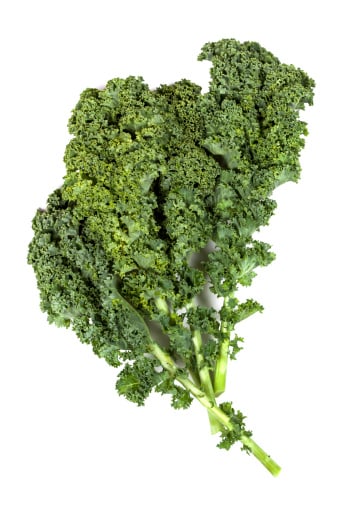 Leafy green vegetables, such as kale, spinach, Swiss chard, and collard greens, are a central component of brain healthy cooking. In fact, in a study of more than 950 older adults in Chicago, people who ate just one to two servings of leafy greens per day had the cognitive ability of a person 11 years younger than those who ate none.
Leafy green vegetables, such as kale, spinach, Swiss chard, and collard greens, are a central component of brain healthy cooking. In fact, in a study of more than 950 older adults in Chicago, people who ate just one to two servings of leafy greens per day had the cognitive ability of a person 11 years younger than those who ate none.
That said, certain medications or medical conditions may change the way that your body responds to these brain healthy ingredients. If you’re taking any medications (especially blood thinning drugs like Warfarin, commonly sold as Coumadin or Jantoven), it’s important to talk with your doctor to determine an appropriate amount of green vegetables for you.
Vitamin K Helps Blood Clot (Thickens Blood)
Most healthy adults should aim for 90-120 mcg of Vitamin K per day, an essential nutrient which, among other roles, helps your body form blood clotting proteins. Blood thinning drugs (like Coumadin) work to reduce your body’s ability to form blood clotting proteins from vitamin K, thus reducing the risk of blood clots. This means that eating foods rich in vitamin K (primarily found in leafy green vegetables) can interact with blood thinning drugs, making them less effective. Therefore, it’s important to talk with your doctor to make sure that your dosage is appropriate for your diet.
To get an idea of how much vitamin K is in certain foods, as well as the foods you might want to discuss with your doctor, see these guidelines from the National Institutes of Health.
Leafy Greens and Coumadin: Consistency is Key
In most cases, your doctor won’t ask you to avoid leafy green vegetables, since they offer many other benefits beyond vitamin K. Instead, your doctor can adjust your medication dosage to accommodate for your vitamin K intake. Problems arise only if your vitamin K intake swings between very high and very low from one week to the next, which can alter the effectiveness of the drug.
Eating an extra serving of sautéed spinach isn’t a big deal if you normally eat kale salads or guzzle green smoothies, as your weekly average of vitamin K wouldn’t go up by all that much. But for someone who is shy around green vegetables, an extra serving of Swiss chard would cause a huge spike in vitamin K intake, and could cause problems with blood thinning medications. Therefore, it is important that people on blood thinning medications strive to eat a consistent amount of leafy green vegetables from week to week, and that they discuss any changes in diet with their doctor. Your physician simply wants to make sure that your intake is consistent, and that you are prescribed the appropriate dosage.
The high levels of chronic disease in the United States certainly aren’t from eating too much kale and spinach! By embracing the tenets of brain healthy cooking, and by keeping open lines of communication with your medical team, we hope you will see changes that allow you to be a happier, healthier you.
Kelly Toups, MLA, RD, LDN
Registered Dietitian at Oldways

 Oldways
Oldways